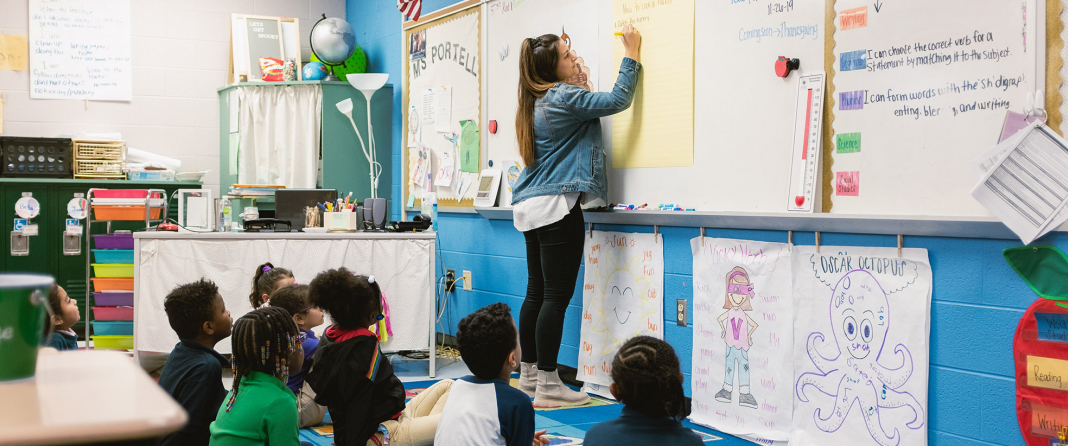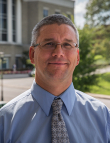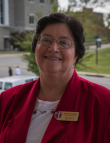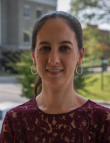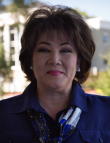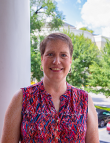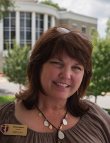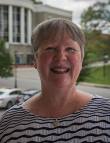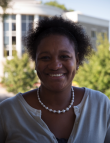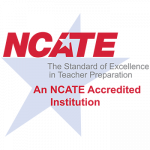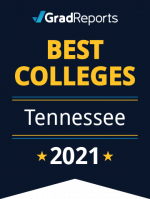Overview
A recent study expressed that early childhood education lays a vital foundation for the remainder of a child's educational career. If you wish to facilitate learning and growth through creativit, a bachelor's degree in Early Childhood Education may be right for you!
The Early Childhood Education program is designed to prepare students for a teaching career in grades PreK through third grade. The School of Education collaborates with area schools and early childhood centers to provide students with observation and teaching experiences to enhance their learning. Students' education experience will culminate in student teaching or enrolling in the fifth-year master’s program for a year-long internship.

Faculty
News
Core Classes
Public School Health
ALH 2100
Designed to assist the future teacher in developing an understanding of the whole person, including physical, mental, emotional and spiritual development; the continuum of health and how it interrelates with academic performance. Prevention of disease, first aid, CPR, choking, drug abuse, current health issues, and health care agencies are presented to increase the potential teacher's awareness in assisting students in all areas of their lives which affect their academic success.
Course Hours: 2
Creative Drama
COM 2350
Course not concerned with play production, acting, or any of the theatrical entertainment aspects of drama. It focuses on drama used solely as a therapeutic and educational tool in the classroom. Participants will focus on creative leadership and teaching strategies that include the following: conflict resolution through drama, critical thinking and life skills development, historical re-enactment techniques in social studies, "teacher-in-role" role playing, imagination exploration, values through game-playing, creative drama for special needs, and drama-in-education techniques for creatively teaching all subjects.
Course Hours: 3
Mixed Media
ART 2200
An introductory overview of studio art processes, media, and art appreciation with an emphasis on creativity. Using traditional and non-traditional materials, students in this course develop inventive experimental approaches to a variety of pictorial media. This course is especially useful for students who will be using art in a clinical or classroom environment. Appropriate for non-art minors.
Course Hours: 3
English Acquisition
ENG 3150
Explores current approaches, methodologies, techniques, and materials for teaching English language learners primarily in K-12 setting. Designed to provide theoretical and practical experience in language acquisition. Course includes a 10 hour field experience.
Course Hours: 3
Language and Literacy
ENG 3180
Addresses language skills including listening, speaking, writing, handwriting, spelling, grammar, and usage. Emphasis on the child's total language development will be addressed. Course includes a 20 hour field experience.
Course Hours: 3
Children’s Literature
ENG 3750
A survey of children's literature in preparation for elementary school teaching and children's librarianship. The best of picture books and prose for children are introduced. Emphasis is placed on implementation of an effective literature program in the elementary grades.
Course Hours: 3
Methods of Assessment and Evaluation for ESL
ESL 6040
Language proficiency assessment for placing is not the same as evaluation of language demonstration and use. This course examines the differences between the two and combines methods with outcomes evaluation. Assessment for "placement" is compared with evaluation of outcomes. Placement is also examined in light of authentic language learning within a school setting. Candidates are expected to understand the various methods as well as produce samples of assessment and evaluation strategies.
Course Hours: 3
Trends, Models, and Methods in Instruction
ESL 6010
Examines the currently used models of ESL instruction from a variety of school boards and regions. These models are examined in light of language learning theory. Models of integration, inclusion, and other models of differentiated instruction are examined and students are expected to not only understand the differences but to also understand the implications for effective language learning.
Cross listed as EDU 2010
Course Hours: 3
Linguistics for Teachers of ESL
ESL 4010
This course includes the study of language transfer issues for ESL students and the examination of both the oral and written domains to provide appropriate instructional scaffolding. A descriptive linguistics course, including a focus on understanding phonologic, syntactic, semantic, and pragmatic aspects of language as they apply to an understanding of any ESL student's native language, significance is also given to sociolinguistic and psycholinguistic aspects of language learning. This is a research course. Fee charged.
Course Hours: 3
United States History Survey II
HIS 2020
Survey of United States' social, political, economic, and military development from 1877 to the present. Offered annually.
Course Hours: 3
Mathematical Ideas and Reasoning
MAT 1070
Designed to provide some insight into the nature of mathematics by examining various mathematical structures. Topics include the development of the real number system, conventional and unconventional algorithms including working in different bases, elementary number theory, algebraic reasoning, data analysis, probability, geometry, and measurement. Critical thinking, writing, and problem solving will be emphasized.
Course Hours: 3
Introduction to the Exceptional Learning
PSY 3411
An overview of the issues related to the characteristics of the exceptional learner. Concepts of learning and classroom management in the public school are considered.
Course Hours: 3
Earth and Space Science
SCI 2510
Covers topics of geology, astronomy, meteorology, oceanography. Suitable for elementary or secondary education majors and for general education. Lab activities related to each major topic are included. Lecture and lab. Fee charged.
Course Hours: 3
Professional Core
Learning Through Play and Creative Expression in the Early Grades
ECE 2000
Addresses the knowledge and skills that are essential for creating and implementing curricula appropriate for young children. The course places emphasis on high-quality, meaningful, and developmentally appropriate learning environments (emotional, social intellectual, and physical), play and creative expression, schedules, and activities by integrating play with drama, art and music for students Pre-K through 3rd grade. Defined are the stages of development in children's creative abilities. Course includes a 12 hour field experience in a licensed child development center (infants - four year olds) and twelve hours of field experience in grades K-3 (3 hours per grade level).
Social Studies Education PreK-3
ECE 3370
This course covers the objectives, principles, trends, materials, and current practices for teaching social studies and fostering social development in early childhood education. Students will learn how to develop appropriate strategies to improve the literacy skills of all children including children from other cultures. A focus will be placed on developing a respect for a variety of cultures including the similarities and differences in beliefs, knowledge bases, changes, values and traditions. The social studies component of this course will include the integration of social studies content and knowledge. Attention is called to the implementation of developmentally appropriate learning environments (emotional, social, intellectual, and physical). A 12- hour field experience is required in grades K-3 (3 hours per grade level in areas of social studies).
Early Childhood Math Methods
ECE 3455
This course explores methods that cover the planning and implementation of mathematics. Emphasis is placed on the investigation of experiences and activities appropriate to young children in the areas of mathematics content and processes, technology, and literacy/math in children’s daily lives. This course also focuses on the implementation of developmentally appropriate learning environments (emotional, social, intellectual, and physical). A 12-hour field experience is required in grades PreK-3.
Science Methods for PreK-3 Teachers
ECE 3465
This course explores the nature, scope, and role of science experiences in the learning and development of young children with emphasis given to a constructivist, inquiry-oriented approach consistent with national standards. This course also focuses on methods that cover the planning and implementation of science appropriate for PreK-3 grades. Emphasis is placed on the investigation of experiences and activities appropriate to young children in the areas of science content and processes, technology, and literacy/science in children’s daily lives. This course also focuses on the implementation of developmentally appropriate learning environments (emotional, social, intellectual, and physical). A 12-hour field experience is required in grades PreK-3.
Reading and Writing PreK-3
ECE 4130
The course focuses on the teaching of reading and writing throughout the PreK-3 curriculum. Emphasis is placed on the objectives, developmental skills, materials, techniques, and the processes of assessing, diagnosing, and correcting reading and writing skills appropriate to Early Childhood. Instruction includes a holistic view of literacy development as well as methods of motivating young children to read and write in the content areas. A clinical field experience of 20 hours in both diagnosis and remediation in grades K-3 is required. At least 10 hours must be completed in an ESL classroom setting. Fee charged.
Becoming a Teacher
EDU 1020
Provides observation and participation in a public school. Field study is completed in the following areas: classroom observation, classroom material preparation, and classroom interactions to enhance the knowledge, skills, and professional dispositions required of educators. The requirements for entering the Teacher Education Program are part of the course. Graded S-U.
Foundations of Education
EDU 1500
Surveys the historical, social, philosophical, and psychological foundations of the American school system with emphasis on an introduction to the teaching profession. Designed to be the first course taken in the teacher education program. Taken in conjunction with EDU 1020.
Technology for Educators
EDU 2100
Focuses on media and specific technologies appropriate to teachers in the educational setting, both for instructional purposes and administrative tasks. Includes exposure to and use of various equipment, materials, and software, including Internet and Office. Computer-assisted instruction and management techniques are presented.
Elementary Curriculum and Instruction
EDU 2350
Focuses on effective instructional methods and curriculum models for K-6 teachers. Common Core Standards and best practices in creating enthusiastic learning environments and writing learning plans are explored. Using data to inform instruction is addressed as part of the planning component. A 20 hour field experience is required.
Effective Classroom Environments
EDU 2556
Focuses on the major traditional and current behavior management theorists and strategies. Prepares the candidate to use effective strategies for developing a safe but invigorating classroom climate. The creation of a position plan paper and its implementation in a classroom with subsequent re-evaluation of the plan and the candidate's implementation strategies are included within this course.
Educational Tests and Measurements
EDU 3410
Examines test construction and application of evaluation principles related to K-12. Emphasis on reading, interpreting, and using data from a variety of assessments including standardized and teacher-made achievement tests. Common Core Standards will be studied in relationship to both formative and summative assessment as instructional tools.
Enhanced Student Teaching
edTPA Seminar
EDU 4730
A prerequisite for Enhanced Student Teaching. This course provides the candidate with experiences in preparation, procedures, implementation, and submittal of required edTPA documentation for initial licensure. Permission required. Graded S/U.
Student Teaching Seminar
EDU 4600
Focuses on the application and analysis of knowledge and teaching skills in the classroom, lesson and unit planning, classroom management, discipline models, and current professional issues. Taken in conjunction with enhanced student teaching. Permission required.
Enhanced Student Teaching Early Childhood
EDU 4680
Provides the culminating fifteen-week, semester-long experience of all who are specializing in early childhood education (K-3). Enhanced student teaching consists of full-day classroom observation and practice teaching in two different school settings: one 7 1/2 week placement in grade K-2 and one 7 1/2 -week placement in grades K-3. Graded S-U. Permission required.
Program Details
Total Credit Hours
128
Program Length
Four years (traditional path)
Mode
Face-to-face, main campus
Additional Information
As part of earning a dual endorsement in early childhood education and English as a second language (ESL), Trevecca students receive training in both subject areas to prepare them for early childhood instruction and language intervention. Coursework covers topics such as effective classroom environments; learning through play and expressive creation; education in urban culture; methods of assessment and evaluation for ESL; trends, models and methods in ESL instruction; and linguistics for teachers of ESL. Students are given a strong foundation in language and literacy instruction, children’s literature, early childhood math, social studies and science methods.
Outcomes/Careers
Earning a Bachelor of Science in interdisciplinary studies that combines an endorsement in early childhood education (Pre-K-3) with a dual endorsement in English as a second language (ESL) equips graduates to teach students who are in need of both early childhood education and ESL services. Or teachers can choose to focus exclusively on one of these two areas.
Many graduates have the desire to remain in the classroom. However, some aspire to teach and then pursue leadership roles in administrative positions. Teachers who are recognized for their effectiveness and excellence within the classroom can also get promoted to work as instructional coaches. These are individuals who lead professional development in a school setting, model instruction in classrooms for teacher improvement and serve as mentors for teachers struggling with the responsibilities of today's classroom.
This program also prepares you to earn a master's or specialist degree. Trevecca offers respected advanced degree programs in educational leadership, ESL and accountability and instructional leadership that could open additional professional doors in the field of education.
Financial Aid
What are my options for financial aid?
At Trevecca, we strive to keep our tuition and fees below the national average for private Christian colleges in order to make education affordable for families. Best of all, nearly 100 percent of our students receive financial aid in the form of generous scholarships, grants, loans and work-study opportunities, lowering costs significantly.
Financial aid for students typically falls into one of four broad categories:
- Grants are need-based awards that you don’t pay back. These are typically given in addition to scholarships and are reviewed annually.
- Loans are borrowed funds that you repay after you leave college. They feature very low-interest rates and long terms.
- Work-study programs allow you to work and earn money to pay for your education as you go through the college process.
- Service commitments such as Army ROTC (Reserve Officers Training Corps). Get more information.
For a detailed explanation of all financial aid options, please visit the Financial Aid pages.
Admissions
High school seniors and graduates who have never attended college full-time should apply for freshman admission to Trevecca. Deadlines for applying are August 1 for each fall semester and December 1 for each spring semester. Our application is free! Learn more about the freshman application process.
FAQs
What are the teacher education admission requirements?
Are scholarship opportunities available through the School of Education?
Which schools are utilized for field experience placements?
Testimonials
The School of Education made a huge impact on my life. The professors were welcoming and understanding—they treated me like a colleague and made sure all my needs were met and that I was prepared to graduate. My early childhood classes were so interactive and enjoyable. I believe this is a testament to my professors’ love and devotion to educating young children.
College is a time of questioning, realization and overcoming challenges. The School of Education helped me through that season. The department is truly caring and loves its students. They supported my calling to educate young children, who are the future of our world!
Mary Marie Endicott, ’20
Overview
Early childhood educators serve young students in one of the most crucial seasons of their development. These teachers provide key foundational instruction and literacy skills while also teaching children to engage socially and emotionally. A child’s lasting impression of school is formed as he or she steps into their first learning environment away from home. Helping children experience a positive start in school is critical for their long-term success.
Additionally, some studies show that children who take part in quality early childhood education programs are less likely to be placed in special education or face the need to repeat a grade. They’re also more likely to complete high school. Competent, compassionate teachers are needed to give children a strong foundation so they can excel in learning.
If you enjoy working with young children, then a career as an early childhood educator could be a great fit for you. Trevecca offers a Bachelor of Science in interdisciplinary studies that combines an endorsement in early childhood education (Pre-K-3) with a dual endorsement in English as a second language (ESL). This degree equips teachers to work both with young students and those with language barriers who can benefit from early intervention.
In communities across the country, schools face the growing need to assist English language learners. According to a 2017 report from the National Center for Educational Statistics, at least 10 percent of public school students in American (5 million students) are students in need of ESL services.
As a student in Trevecca’s program, you’ll complete coursework with an early education emphasis. You’ll also take 12 hours of ESL courses to gain the expertise needed for instructing students.
Your Trevecca experience will include:
- Small class sizes
- A distinctly Christian environment
- Mentoring relationships with professors
- Courses taught by faculty with public and private school experience
- Student teaching opportunities in Nashville
